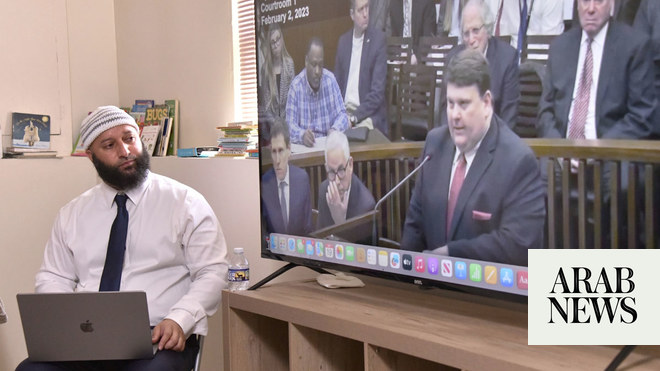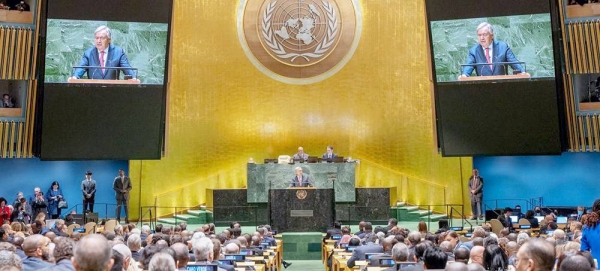
Adnan Syed, who spent 23 years in prison before he was freed from his conviction for the 1999 murder of his ex-girlfriend Hae Min Lee, has gotten a job advocating for prison reform at Georgetown University, according to the prestigious US school.
Syed, whose case was the subject of the hit podcast Serial, began his role as a program associate with Georgetown’s Prisons and Justice Initiative on 12 December, school officials announced in a news release Friday. The gig is Syed’s first nine-to-five office job after the 41-year-old has spent more than half his life behind bars for a conviction by which authorities no longer stand.
“It’s a really normal and … amazing feeling,” Syed said in a prepared statement attributed to him. “I’m so grateful for it.”
The Prisons and Justice Initiative at Georgetown educates people who are incarcerated, gives job training to those who have been released and aims to address “root causes and consequences of mass incarceration,” university officials added in their news release.
At his new job, Syed is working with a class titled “Making an Exoneree”, which involves students re-investigating wrongful convictions, producing documentaries about their cases and ultimately striving to free innocent people.
Lee was 18 when she was strangled to death and her body was found buried in Baltimore’s Leakin Park in February 1999. Syed was later charged with her murder, and his first trial in December 1999 ended in a mistrial. He was convicted of murder and sentenced to life in prison at his second trial in February 2000.
In September, Maryland state prosecutors filed a motion saying a lengthy investigation conducted alongside Syed’s defense had unearthed new evidence undermining his conviction. That evidence, which officials had intentionally hidden from Syed’s defense, mainly supported theories that someone else had killed Lee.
A judge ordered that Syed be released from prison and that his conviction be overturned. Prosecutors later opted against recharging him with Lee’s murder, meaning that he was free to move on with his life.
Lee’s family has since appealed to keep the conviction in place, arguing that they were deprived of a meaningful chance to participate in the hearing that set the stage for Syed’s release. That appellate process was unresolved as of Friday.
Before the fall’s dramatic turn of events, the names of Syed and Lee became known across the US as well as worldwide with the release of Serial in 2014.
Yet a lawyer and activist who worked to overturn Syed’s conviction, Rabia Chaudry, critcized Serial for omitting information that questioned the thoroughness of the investigation into Lee’s death.
Chaudry produced a follow-up podcast, Undisclosed, and the book Adnan’s Story: The Search for Truth and Justice After Serial, which also kept Syed’s case on the international conscience, along with the 2019 HBO documentary series The Case Against Adnan Syed.
The director of the Prisons and Justice Initiative, Marc Howard, hailed Syed’s hiring Friday, saying it stemmed from his strong commitment to his education despite the shady circumstances that for so long landed him behind bars. Syed had been enrolled in Georgetown’s liberal arts program from prison before his release from custody.
“He is one of the most resilient and inspiring people I’ve ever met, and he has so much to offer our team and … students,” Howard said.
In Friday’s statement from Georgetown, Syed said getting a job at the university that gave him an education – and through that, hope – while he was imprisoned was “a full circle moment”.
“Hopefully, I can have the same kind of impact on others,” Syed said about his new employment opportunity.












